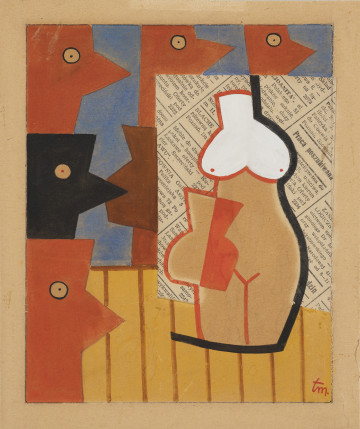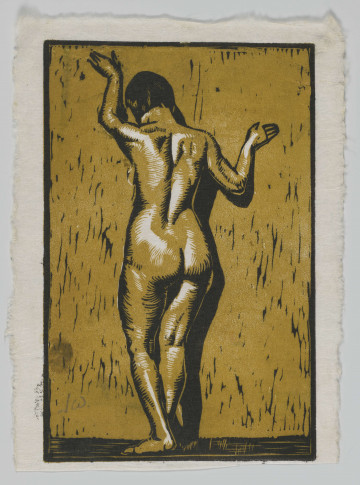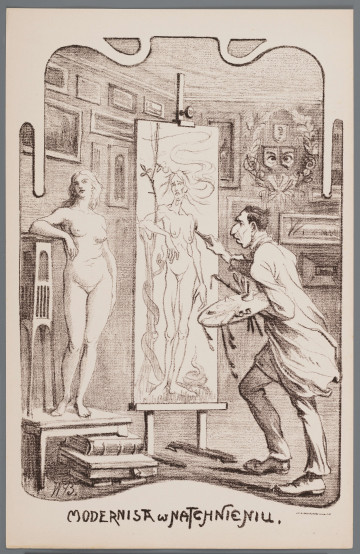
Zuzanna and the Old Men
1949
National Museum in Szczecin
Part of the collection: European classics of modernity
The name of Kazimierz Podsadecki, painter, draughtsman and graphic designer, is commonly associated with the heroic period of the leftist avant-garde. Polish artistic historiography willingly recalls especially his interwar achievements on the borderline of media: cooperation in theatre productions and the field of experimental film. Podsadecki gained a permanent place in international, including foreign-language studies of 20th-century art thanks to his photo-collages and photo-montages, and his involvement in the promotion of new printing. It is less often remembered that from the second half of the 1930s, the artist, still carrying out commercial graphic commissions using mental shortcuts and post-cubist formal language, returned to classically modern painting. Colour and the traditional genres of landscape, genre scenes and still life began to play a prominent role. His interest in colour painting survived the Second World War and was transferred by Podsadecki to Szczecin. The artist decided to take this step at the end of 1945, encouraged not only by the central propaganda slogan In the West, the lands are waiting, but also by social arrangements. While the bureaucratic and administrative organisation in the immediate post-war period was the responsibility of the Poznań circle centred around the city's president, Piotr Zaremba, cultural matters were largely settled in the office of the Szczecin voivode, the Lviv-born Leonard Borkowicz, who had good contacts in Kraków. This communist, active since the early 1930s, was called a friend of the poets for good reason. Thanks to him, several highly regarded writers settled down in the most exotic centre of the Polish Wild West. The atmosphere of the Krakow bohemia was revived in Szczecin's Club of the 13 Muses, where Podsadecki was a frequent visitor. To this day, the dispute over who came up with the name of this meeting place for artists, writers and journalists remains unresolved. Apart from Konstanty Ildefons Gałczyński, the Kraków painter is also mentioned among the originators. His Zachód [The Dusk] (1948), based on mannerist contrasts of emerald and turquoise green and pink, is the club's peer.
Szymon Piotr Kubiak
Author / creator
Dimensions
cały obiekt: height: 30 cm, width: 35 cm
Object type
painting
Creation time / dating
Creation / finding place
Identification number
Location / status

1949
National Museum in Szczecin

National Museum in Lublin

1913
National Museum in Lublin
DISCOVER this TOPIC
Museum of King Jan III's Palace at Wilanów
DISCOVER this PATH
Educational path